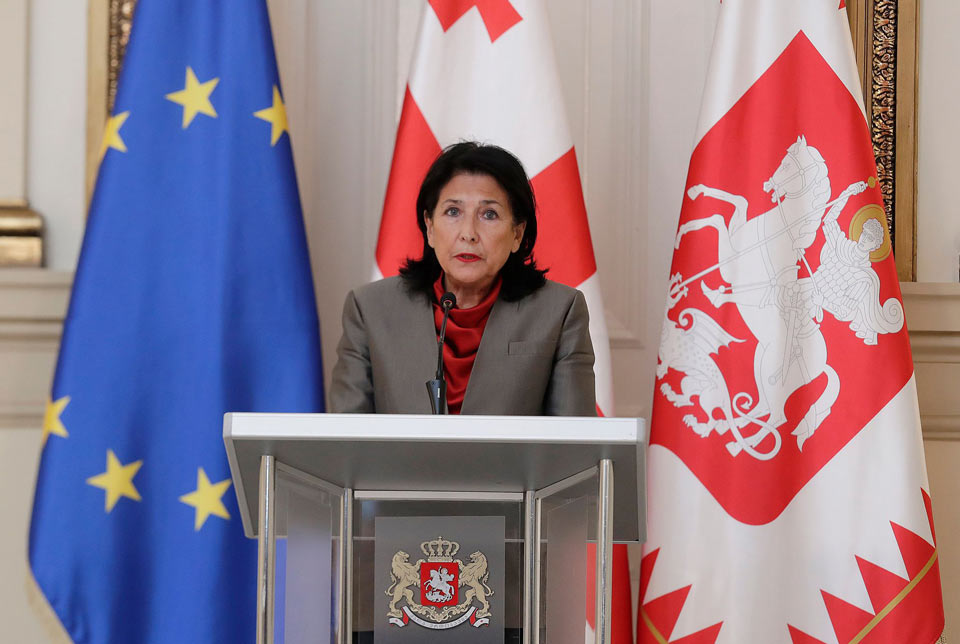President signs laws on Common Courts, abolishment of State Inspector’s Service
Georgian President Salome Zourabichvili signed the proposed law about the abolishment of State Inspector’s Service and the establishment of two separate bodies instead.
However, as stated in the statement of the President, she considers it unacceptable to adopt such an important law in an expedited manner, without any consultations or proper discussion.
“Today I signed the amendments to the law on the State Inspector’s Office, which provides for the abolition of the service and the establishment of new structures instead. There have been and still are differing views on such structural changes, although this decision does not contain a categorical legal objection. The abolition of the service and the establishment of new structures do not provide a basis for motivated remarks of a legal nature by the President.
However, I find it unacceptable to pass such an important law in an expedited manner, without any consultation or proper discussion, especially since the need to review it in an expedited manner has not been justified by anything.
It is unacceptable that in a country that aims to consolidate democracy, a key issue such as the protection of personal data is not given adequate time or space for discussion.
It is a very bad precedent that the head of independent service, a person elected for a term of 6 years, is dismissed without any prior warning or reasoned remarks about her professional activities, especially when strengthening the independence and inviolability of officials remain one of the biggest challenges for our country.
The resulting legislative changes have created an unfair situation, which I share and I express my negative attitude. I hope that a solution will be found to enable the State Inspector to continue her activities in one of the newly created services, with all the guarantees of independence. The decision made against her also determines the degree of independence of other employees,” reads the President’s statement.
President also signed amendments to the Organic Law on Common Courts. At the same time, the President warned the Parliament “about the risks contained in the new edition of the law.”
“As for the Organic Law on Common Courts, the amendments of which I signed today, it must be said that these legislative changes also raise some questions. However, I do not consider the grounds for submitting legally motivated remarks regarding these changes to be insufficient.
Nevertheless, in this case, too, the question arises as to whether it is possible to increase the degree of independence of judges through these changes. For example, the re-election/appointment of members of the High Council of Justice for the second time in a row raises the question of whether this opportunity will increase the degree of independence of the members of the Council or assist the process of staff renewal. Similar questions arise with respect to other changes.
However, the President is not able to make a decision based on doubts. Instead, I want to warn the legislature about the dangers of the new edition of the law and remind them that the independence and impartiality of judges is a cornerstone of our democracy. I also want to assure everyone that I will be very attentive towards the enforcement of the law,” said the President.

